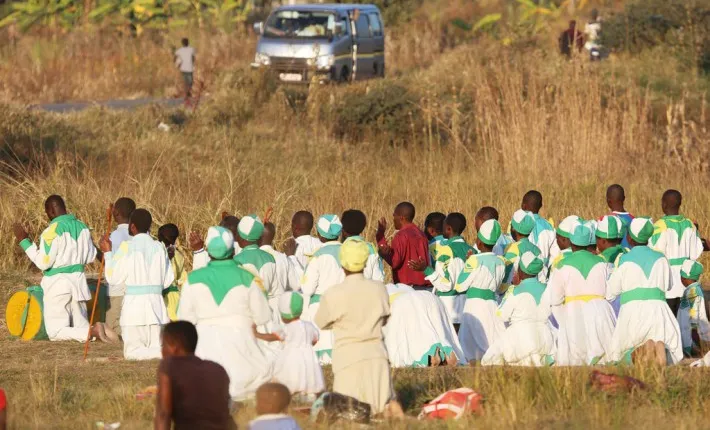Apostolic sects in Bulawayo that hold open-air services have raised concerns about the exorbitant prices and limited information on applying for designated church stands.
This comes amidst controversy surrounding these open-air churches. The Bulawayo City Council (BCC) is advocating for a ban on the use of flags, tents, cloths, banners, and “scary artefacts” by these churches, claiming it goes against local cultural norms.
Additionally, the Mthwakazi Republic Party (MRP) recently evicted apostolic sects from undesignated locations where they had set up shrines.
The Union for Development for Apostolic Churches in Zimbabwe (UDACIZA) Programs Manager, Philimon Hwami said exorbitant stand prices limit open-air churches to purchase legal stands.
“The challenges that we face as churches who use open spaces is that council can evict those members who will be praying at any given time, there is no land ownership. Secondly, when those churches go to council seeking permission to purchase land, sometimes they are told to pay certain amounts and those churches fail to afford those amounts,” said Hwami.
He said some open-air churches have ablution facilities at their site, “ but others who believe they will be in the bush, they make use of the bush.”
Hwami said they want to create a dialogue between open-air churches and the council so that in their sites there will be proper ablution facilities.
Philani Nkomo, a member of an apostolic church that uses an open-air space near Mzilikazi, explained their reasons for worshipping outdoors. “As apostolic churches, many of us are tenants, and homeowners don’t allow church services or certain practices that combine Christianity and tradition within their houses,” he said in an interview with CITE.
Nkomo advocated for affordable and accessible facilities like community halls for regular worship. However, he acknowledged the difficulty in securing consistent access to existing spaces. “Some people approached us claiming to be from the local authority,” he said. “We expressed interest in renting halls from the council monthly. Unfortunately, the current halls are not readily available for all the churches to use on a rotating basis.”
He explained their preference for open-air spaces: “It’s easier for people to find us, which is why there are so many churches in these areas.”
He added that they cooperate with authorities by using temporary toilets to maintain cleanliness.
“We take care of the environment,” he said. “We have a system for disposing of paper waste. When using fire for religious purposes, we ensure we have water to extinguish it. We don’t burn the environment; we only burn what’s necessary for our prayers.” He added, “We understand the importance of maintaining the ecosystem for creatures like locusts and millipedes. We don’t want to make the environment dirty or destroy trees.”

